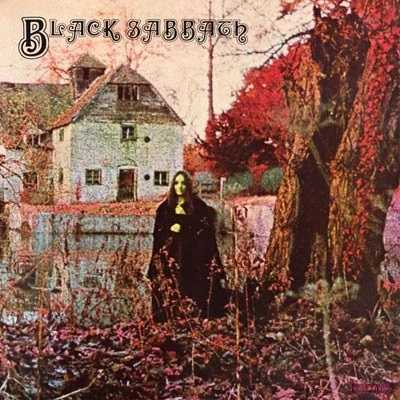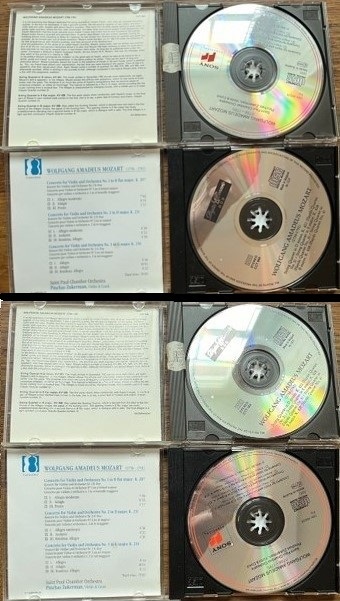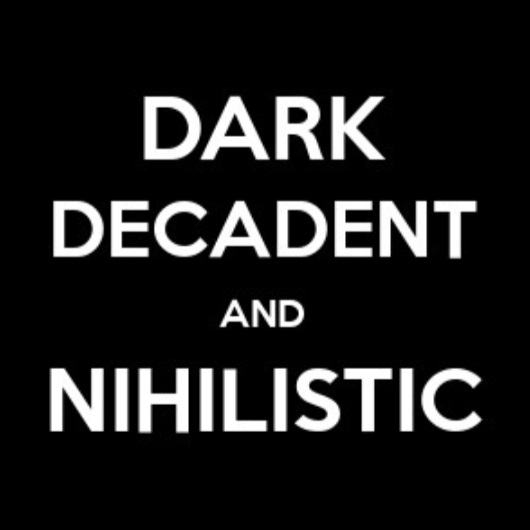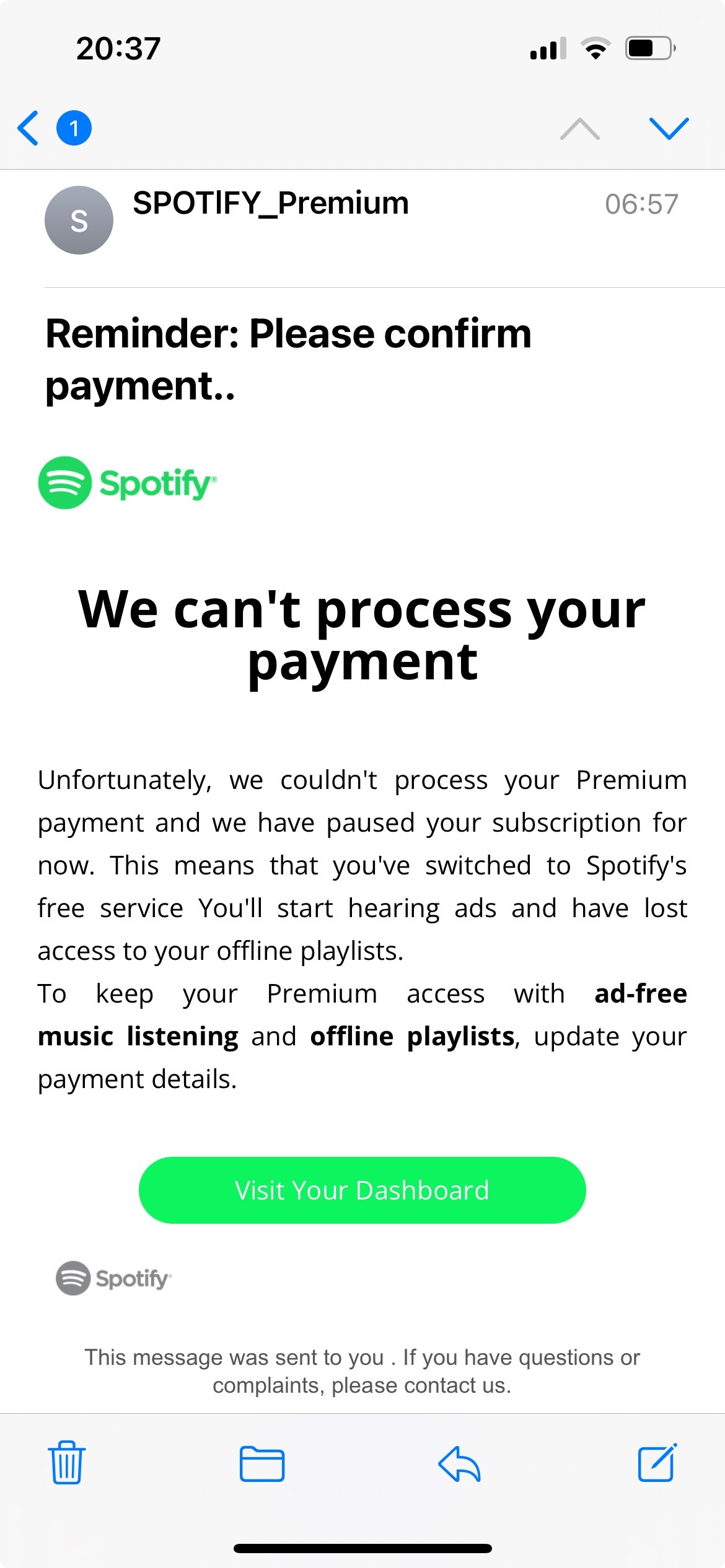 Have you ever wondered why the introductory guitar riff in the first song of Black Sabbath's debut album sound so eerie and foreboding? This is tritone. Tritone is an interval between two notes, formed from three whole-tone steps. For example from C to D, D to E, and E to F sharp, so the tritone lies between C and F-sharp. This creates a tension that wants to be resolved. The interval sits somewhere between a perfect fourth and a perfect fifth and is therefore also called an augmented fourth (with a sharp) or diminished fifth (with a flat) depending on context. Whatever. In the Middle Ages, music was supposed to be holy, harmonious and ordered. A dissonant interval went against this. Tritone was named diabolus in musica (the Devil in music). Some heavy-metalists claim that tritones were banned by the Catholic church because of its association with the Devil. The Devil was said to exist in a particular musical tone. An equally good as hard to kill story, but there's no empirical support that tritones were ever banned. Tritones were discouraged and avoided due to the strict rules of harmony observed by those composing for the Catholic church. Moreover, tritones, with their unpleasant dissonances, were difficult to sing in tune. Toni Iommi come up with the three-note passage after listening to Gustav Holst "Mars, The Bringer of War" (from the suite The Planets). The guitarist imitated the sound on guitar and liked the evil, sinister and unsettling feeling about it. Toni Iommi experimented with it, inverted it and slowed it down. The rest is history.
Have you ever wondered why the introductory guitar riff in the first song of Black Sabbath's debut album sound so eerie and foreboding? This is tritone. Tritone is an interval between two notes, formed from three whole-tone steps. For example from C to D, D to E, and E to F sharp, so the tritone lies between C and F-sharp. This creates a tension that wants to be resolved. The interval sits somewhere between a perfect fourth and a perfect fifth and is therefore also called an augmented fourth (with a sharp) or diminished fifth (with a flat) depending on context. Whatever. In the Middle Ages, music was supposed to be holy, harmonious and ordered. A dissonant interval went against this. Tritone was named diabolus in musica (the Devil in music). Some heavy-metalists claim that tritones were banned by the Catholic church because of its association with the Devil. The Devil was said to exist in a particular musical tone. An equally good as hard to kill story, but there's no empirical support that tritones were ever banned. Tritones were discouraged and avoided due to the strict rules of harmony observed by those composing for the Catholic church. Moreover, tritones, with their unpleasant dissonances, were difficult to sing in tune. Toni Iommi come up with the three-note passage after listening to Gustav Holst "Mars, The Bringer of War" (from the suite The Planets). The guitarist imitated the sound on guitar and liked the evil, sinister and unsettling feeling about it. Toni Iommi experimented with it, inverted it and slowed it down. The rest is history.
 This blog post may seem a little bit off-topic, but it actually has some bearing on the characteristics that built this website. In 1990, I (literally) ditched all my vinyl records and went all in for cds. In those days, cds were really expensive. Nowadays, you can buy used cds for as little as 20-50 cents. On weekends, I spend time in thrift stores and flip through cds. I mostly buy quality classic cds released on Deutsche Grammophon, Decca, Sony and Philips and the like. I flip through the cd racks and shelves with the speed of a hummingbird's wings. I often find something to buy. The store clerk always asks: "have you checked if there's a cd inside?" The clerks never ask: "have you checked if it's the correct cd inside?". I meticulously check the cd and its condition. A couple of weeks ago, I didn't follow the protocol and made a mistake. Back home, I discovered that the jewel case "Mozart* - Pinchas Zukerman, Saint Paul Chamber Orchestra* - Violin Concertos No.1, 2 & 3, Sony Classical SBK 46 539" had a misplaced cd in it, namely "Mozart* – 3 String Quartets, K. 421, K. 428, K. 458, Digital Concerto – CCT 644". A more normal person would maybe be slightly annoyed, but then let it go. However, this triggered something inside me. Clearly, this mishap was about principles, values and beliefs. I had a hypothesis: the previous owner/giver had mixed up the cds when he gave the cds to the store. I went back to the thrift store a couple of days later. I knew which cd I was looking for. After browsing through all cds in the store I finally found the cd (it was, of course, the next to last of all cds). I urgently and expectantly opened the jewel case. However, it contained another misplaced Mozart cd. Did I get discouraged or slowly trickle out from the store? No, I don't give up so easily. My hypothesis had been falsified. My new hypothesis was that the SBK cd could be found in the third jewel case. And this cd was in the last batch that I had held in my hands. Who seeks shall find; who sits with folded hands or sleeps is blind. And there it was! I checked the condition (near mint), paid 50 cent for it and left the thrift store with a smug smile on my face. Firstly, I had brought home cd no. 5 233 to my cd collection. Secondly, I had brought order, structure and predictability into the thrift store. Each thing is now in its right place and where it should be in the first place. And thirdly, I gave back the cheap cd "Mozart* – 3 String Quartets, K. 421, K. 428, K. 458, Digital Concerto – CCT 644" to a nearby thrift store so that the cd could come into circulation again. Did I overdo it? Maybe, but going above and beyond to make it right are the very same characteristics that have built this website.
This blog post may seem a little bit off-topic, but it actually has some bearing on the characteristics that built this website. In 1990, I (literally) ditched all my vinyl records and went all in for cds. In those days, cds were really expensive. Nowadays, you can buy used cds for as little as 20-50 cents. On weekends, I spend time in thrift stores and flip through cds. I mostly buy quality classic cds released on Deutsche Grammophon, Decca, Sony and Philips and the like. I flip through the cd racks and shelves with the speed of a hummingbird's wings. I often find something to buy. The store clerk always asks: "have you checked if there's a cd inside?" The clerks never ask: "have you checked if it's the correct cd inside?". I meticulously check the cd and its condition. A couple of weeks ago, I didn't follow the protocol and made a mistake. Back home, I discovered that the jewel case "Mozart* - Pinchas Zukerman, Saint Paul Chamber Orchestra* - Violin Concertos No.1, 2 & 3, Sony Classical SBK 46 539" had a misplaced cd in it, namely "Mozart* – 3 String Quartets, K. 421, K. 428, K. 458, Digital Concerto – CCT 644". A more normal person would maybe be slightly annoyed, but then let it go. However, this triggered something inside me. Clearly, this mishap was about principles, values and beliefs. I had a hypothesis: the previous owner/giver had mixed up the cds when he gave the cds to the store. I went back to the thrift store a couple of days later. I knew which cd I was looking for. After browsing through all cds in the store I finally found the cd (it was, of course, the next to last of all cds). I urgently and expectantly opened the jewel case. However, it contained another misplaced Mozart cd. Did I get discouraged or slowly trickle out from the store? No, I don't give up so easily. My hypothesis had been falsified. My new hypothesis was that the SBK cd could be found in the third jewel case. And this cd was in the last batch that I had held in my hands. Who seeks shall find; who sits with folded hands or sleeps is blind. And there it was! I checked the condition (near mint), paid 50 cent for it and left the thrift store with a smug smile on my face. Firstly, I had brought home cd no. 5 233 to my cd collection. Secondly, I had brought order, structure and predictability into the thrift store. Each thing is now in its right place and where it should be in the first place. And thirdly, I gave back the cheap cd "Mozart* – 3 String Quartets, K. 421, K. 428, K. 458, Digital Concerto – CCT 644" to a nearby thrift store so that the cd could come into circulation again. Did I overdo it? Maybe, but going above and beyond to make it right are the very same characteristics that have built this website.
 A counterculture is a culture whose values and norms of behavior differ substantially from those of mainstream society, sometimes diametrically opposed to mainstream cultural mores. Punk is a counterculture. It's said to be dark, decadent and nihilistic. I met punk in 1977. We obviously noticed the ragged clothes, the leather jackets with rivets and the safety pins through chins, but we didn’t make too much of it. And we certainly didn’t recognize the tension, anger, frustration and anxiety. We just danced on. Let me explain. I grew up in a small ”company town” outside Stockholm. In those days, there was nothing to do except for sport or dancing. We danced (or made our unruly and stochastic moves - for lack of a better expression) in modern places like in the basement of the newly built "The People's House" (Swedish: Folkets hus), in the basement of a swim center and anachronistically in rural community centers, a type of homestead or heritage center (Swedish: bygdegård) in the rural parts of the municipality. These were small communities and not densely populated. If the places we went to were an odd mix of new and old, it’s was nothing compared to the DJs playlists. "Daddy Cool" by Boney M, "2-4-6-8 Motorway" by Tom Robinson Band, "Yes Sir, I Can Boogie" by Baccara, "Anarchy in the UK" by Sex Pistols, "You Sexy Thing" by Hot Chocolate, “Disco Duck” by Rick Dees and His Cast of Idiots, "God Save The Queen” by Sex Pistols, "I Will Survive" by Gloria Gaynor, "White Riot" by Clash, "Dancing Queen" by Abba, "Pretty Vacant" by Sex Pistols, "Dont' Leave Me This Way" by Thelma Houston, "Sheena Is A Punk Rocker" by Ramones, "That's The Way (I Like It)" by KC & the Sunshine Band, and for the last dance (cheek-to-cheek) "I’m Not In Love" by 10cc or "Love Hurts" by Nazareth. The punk influences just blended in. Maybe we "danced" a bit more intense in the punk songs, and maybe waived an arm or two or jumped up and down, but there’s all there was to it. Nothing dark, decadent or nihilistic. Except for a glue sniffing girlfriend in the toilet.
A counterculture is a culture whose values and norms of behavior differ substantially from those of mainstream society, sometimes diametrically opposed to mainstream cultural mores. Punk is a counterculture. It's said to be dark, decadent and nihilistic. I met punk in 1977. We obviously noticed the ragged clothes, the leather jackets with rivets and the safety pins through chins, but we didn’t make too much of it. And we certainly didn’t recognize the tension, anger, frustration and anxiety. We just danced on. Let me explain. I grew up in a small ”company town” outside Stockholm. In those days, there was nothing to do except for sport or dancing. We danced (or made our unruly and stochastic moves - for lack of a better expression) in modern places like in the basement of the newly built "The People's House" (Swedish: Folkets hus), in the basement of a swim center and anachronistically in rural community centers, a type of homestead or heritage center (Swedish: bygdegård) in the rural parts of the municipality. These were small communities and not densely populated. If the places we went to were an odd mix of new and old, it’s was nothing compared to the DJs playlists. "Daddy Cool" by Boney M, "2-4-6-8 Motorway" by Tom Robinson Band, "Yes Sir, I Can Boogie" by Baccara, "Anarchy in the UK" by Sex Pistols, "You Sexy Thing" by Hot Chocolate, “Disco Duck” by Rick Dees and His Cast of Idiots, "God Save The Queen” by Sex Pistols, "I Will Survive" by Gloria Gaynor, "White Riot" by Clash, "Dancing Queen" by Abba, "Pretty Vacant" by Sex Pistols, "Dont' Leave Me This Way" by Thelma Houston, "Sheena Is A Punk Rocker" by Ramones, "That's The Way (I Like It)" by KC & the Sunshine Band, and for the last dance (cheek-to-cheek) "I’m Not In Love" by 10cc or "Love Hurts" by Nazareth. The punk influences just blended in. Maybe we "danced" a bit more intense in the punk songs, and maybe waived an arm or two or jumped up and down, but there’s all there was to it. Nothing dark, decadent or nihilistic. Except for a glue sniffing girlfriend in the toilet.

"What's wrong with this picture?" is a classic game that can be used in the classroom to help young kids learn how to think critically and solve problems. However, you have to know me well to solve this problem. What are the five errors in the image? First, I never made that kind of payment. I buy physical or digital releases. Second, I'm not a Spotify Premium subscriber. Never have been and never will be. This should be obvious to the loyal followers of this website. I'm ranting and raving about Spotify. Relentlessly and fiercely. Third, I'm not a Spotify Freemium subscriber. If something isn't of any value, then it's free. Music have, or should have, a value. Fourth, I'm not a friend of streaming in any shape or form. However, I get unsolicited and unlimited streaming via the free Bandcamp app whenever I buy a physical or digital album there. Fifth, I have built resilience against risk of scams. I got scammed once, read more here (opens in a new window). A scam attempt is to try to take advantage of people's trust. There's no trust here. The irony in this case is that I deeply dislike Spotify. However, a scamming attempt is nothing compared with the company scamming. Spotify has raised the bar for ridiculous management salaries and toxic management culture. An anonymous employee wrote:"Spotify is one of the most toxic work environments I've ever worked in. Politics run rampant and teams here are the most genuinely unkind I've ever met. If you care about producing work, this is not the place for you. Do NOT put your trust in managers. Here, they are just as destructive to your personal goals as they are ineffective in helping you realize any professional development." Paradoxically, Spotify is one of the most attractive employers for young professionals. The worst part isn't the scamming attempt. The worst part is the implying that I'm a Spotify subscriber. That really hurts.
